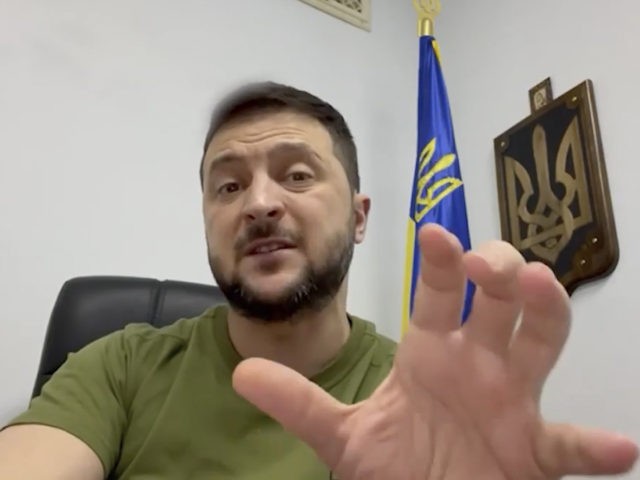KHARKIV, Ukraine – Ukrainian authorities are cracking down on anyone suspected of aiding Russian troops under laws enacted by Ukraine’s parliament and signed by President Volodymyr Zelensky after the Feb. 24 invasion.
Offenders face up to 15 years in prison for acts of collaborating with the invaders or showing public support for them.
Not all Ukrainians oppose the invasion, and pro-Moscow sentiment is more common among Russian-speaking residents of the Donbas, an industrial region in the east.
Although the Zelensky government has broad support, even among many Russian speakers, not all Ukrainians oppose the invasion. Support for Moscow is more common among some Russian-speaking residents of the Donbas, an industrial region in the east. An eight-year conflict there between Moscow-backed separatists and Ukrainian government forces had killed over 14,000 people even before this year’s invasion.
It is also believed that a majority of residents in the Russia-annexed Crimea, where the regional government declared independence from Ukraine and asked to join the Russian Federation after the Euromaidan in 2014, support Moscow — although a referendum in which this course of action received overwhelming support was condemned as “predetermined” by some minorities.
Some businessmen, civic and state officials and members of the military are among those who have gone over to the Russian side, and Ukraine’s State Bureau of Investigations said more than 200 criminal cases on collaboration have been opened. Zelensky has even stripped two SBU generals of their rank, accusing them of treason.
The Ukrainian state has been criticised for being too quick to level accusations of treason in the past, however, with neighbouring Hungary — a European Union and NATO member-state — accusing Kyiv of employing “the darkest methods reminiscent of the Soviet era” when it launched criminal proceedings against local councillors in the border region of Transcarpathia, which is home to a large Hungarian ethnic minority, after they sang the Hungarian national anthem at a festival.
More recently, a senior member of President Zelensky’s government alluded to President Putin having possibly promised to transfer Transcarpathia to Hungary as an explanation for the Hungarian government’s refusal to allow weapons shipments to enter Ukraine via its territory — sparking outrage in Budapest.
A “registry of collaborators” is being compiled and will be released to the public, said Oleksiy Danilov, head of Ukraine’s Security Council. He refused to say how many people have been targeted nationwide.
There was recently a stir on social media when Chilean-America Gonzalo Lira, a self-styled independent journalist and controversial Internet celebrity also known as ‘Coach Red Pill’, was allegedly “disappeared” by the SBU in Kharkiv (Kharkov) for criticising what he calls “the Zelensky regime”, although he has since resurfaced and remains highly critical of the Ukrainian government in interviews.
With martial law in place, authorities have banned 11 allegedly pro-Russian political parties, including the country’s largest opposition party, the Opposition Platform For Life, which was founded by Viktor Medvedchuk, a jailed oligarch accused of having close ties to Putin, and had 25 seats in the 450-member Ukrainian parliament, known as the Verkhovna Rada (Supreme Council).

COMMENTS
Please let us know if you're having issues with commenting.